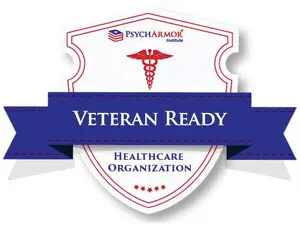The month of April is National Alcohol Awareness Month
Eighty-seven percent of people have consumed a glass of alcohol at least once in their life. While occasional alcohol consumption is fine, over-consumption can be deadly. When symptoms including physical hazards, fractured relationships, legal trouble, and hospitalizations arise; alcohol rehab may be the answer. The National Institute on Alcohol Abuse and Alcoholism defines Alcohol Use Disorder as: a chronic relapsing brain disease characterized by compulsive alcohol use, loss of control over alcohol intake, and a negative emotional state when not using. Research shows sixteen million people are currently suffering from alcohol use disorder. Unfortunately, only 160,000 or one-tenth of those people will receive alcoholism treatment.
Typical alcoholism treatment programs have four phases. The first phase is detoxification. Detoxing is extremely dangerous for an alcoholic experiencing withdrawal symptoms such as heart palpitations, seizures, mood swings, and confusion to do so alone. Seabrook has a unit specialized in the treatment of detoxification services. A staff of CARF accredited nurses are present all hours of the day ready to help. Additionally, Seabrook’s Medical Director Dr. Joseph Ranieri has been helping those plagued by addiction for twenty years. Dr. Ranieri implemented the use of acu-detox at Seabrook: utilizing acupuncture to reduce the physical and emotional stress of detoxification from alcohol.
The second phase of alcoholism treatment is inpatient care. After successfully completing detox, patients will transition into residential life on Seabrook’s beautiful forty-acre campus. During their residential stay, patients will participate in one-on-one counseling, group therapy, AA meetings, family counseling, and meditation for twenty-eight days. Additional services available during residential stay include sleep hygiene, drum circles, utilization of our adventure rope course, and therapeutic massage.
Phase three of alcoholism treatment is outpatient care. Eliminating the harmful consumption of alcohol is only the beginning. Outpatient meetings are recommended to patients for eight months following their discharge from our facility. We have four New Jersey outpatient offices located for our patient’s convenience in Bridgeton, Cherry Hill, Morristown, and Shrewsbury. Once a week patients will visit one of our outpatient facilities and engage in individual and group therapy sessions.
Alcoholism treatment is not a quick fix. Alcoholism is a chronic disease that cannot be cured, but can be managed. As time goes on, it is natural to cut back on involvement in AA meetings. However, relapse prevention will be an active part of an alcoholic’s life. If relapse does occur, not all hope is lost. Relapse can often time be a step in recovery. Alcoholism treatment is not a one size fit all program. Behavioral adjustments need to be made such as construction of a solid support network and developing new skills to better your life and distract yourself from the triggers of alcoholism. Undergoing medication assisted treatment has become a popular addition to alcoholism treatment.
Most importantly, the underlying causes that have lead someone to alcoholism treatment need to be addressed and conquered. Whether the reason be a co-occurring disorder, genetic disposition, interrupted social norms, or poor coping skills; all must be dealt with. If mental illness is present such as anxiety or depression, the co-occurring disorder must be treated concurrently alongside the alcoholism treatment.
If suffering from alcoholism or a co-occurring disorder, the best place to begin your journey to alcohol rehab would be to meet with your primary care physician. Your primary care doctor is most familiar with your unique situation and can best recommend the alcoholism treatment center for you. Your doctor may also conduct a preliminary health screening to access the level of care necessary. Alcoholism can lead to brain and liver damage at the least. The more symptoms present, the more urgent of care will be required. As different facilities have different specialties, your primary care physician would be able to provide you with the most tailored alcoholism treatment referral.
If someone you know is drinking too much, too fast, or too often reach out for help. Seabrook has been conducting alcoholism treatment for over forty years. Through cognitive behavioral therapy, motivational interviewing, family counseling, individualized counseling, and a plethora of other services we can help save your loved one. Our New Jersey facilities offer a safe and supportive environment for you or someone you love to begin the journey toward lasting sobriety. To learn more about our addiction treatment services, contact us today: (888) 223-0298.



